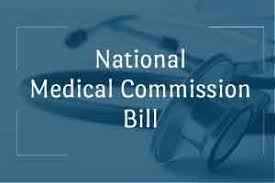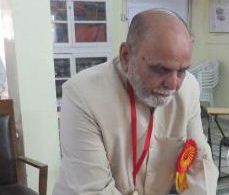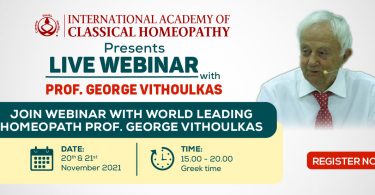Alastair Gray holds various consulting roles: academic (Endeavour College, Australia, CHE, New York) educational (Portland Centre of Integrative Medicine, UK) communications (HRI, UK) management (Director Operations College of Health and Homeopathy NZ), as well as consulting to organisations on homeopathic provings and eLearning. Prior, in Australia he headed up the homeopathy department at Endeavour, and was the National Academic eLearning Manager. He has lectured under and post-graduate CM, homeopathy and naturopathy for 18 years, including philosophy, case taking and management, ethics, business practices and scope of practice.
A regular seminar and conference presenter worldwide he is the author of 22 books and numerous articles on primary research in natural medicine. He is passionate about e Learning and educational technology in his academic and teaching work. Clinical practice (25 years) remains a significant focus. He is enrolled in a PhD at University Technology Sydney exploring
the intersection of Education, CM and learning technologies.
Dr Daisy Katarmal (ED): How and when was your first encounter with homeopathy? What do you find unique about homeopathy?
Alastair Gray (AG): My first experience with Homeopathy was an experiential one when I was much younger. Recently, I was on YouTube and saw a brilliant interview with Geoff Johnson, the English veterinarian and he was talking about his first experience with Homeopathy. It was exactly the same as mine. For years and years I had really difficult and miserable symptoms of hay fever which, when I was 23, completely disappeared after one visit to a homeopath. I found it a bewildering experience given the fact that the homeopath asked me to actually little about my symptoms but a lot about my history and a lot about other features of my health. At the time I just finished my degree in History and was struggling to work out what place in the world was for me. All of a sudden the incredibly separate and disconnected parts of my life made sense through reading the Organon of Medicine and having this experience. In a way it is no different from most passionate homeopaths’ arrival to the study of homeopathy. But it was definitely a very powerful experience.
There are a number of things that I find unique about homeopathy. I love that it is genuinely a whole healing system that can stand on its own in
the hands of the really skilled practitioner. I love that for the most part it is gentle and is perfectly suited at the beginning of chronic disease process.
ED: What inspired you to write a book on the various ‘methods’ of
homeopathy?
AG: The major inspiration to begin work on the Landscape of Homeopathic Medicine series and the Method book in particular what the decade of experience I had in running clinical training programs all over the world for
different colleges. Everywhere I turned, there was a specific piece of the homeopathic puzzle that excellent students were really struggling with. For the most part, they were excellent at case taking and when it came to evaluating and analysing the case, they were fairly good as well. But almost universally there is a real problem in translating the language of patient to repertory language, and the other area that I found students really struggling
with was in the ability to come to an understanding of a working totality of symptoms. I think most homeopaths that have been working for 10
years or more find this unspoken groove where they are able to somehow intuitively and expertly arrive at a meaningful totality of symptoms in a case. This expands or contracts to inform everything about the evaluation and ultimately the choice of remedy. I think initially it is a very difficult concept for students to grasp and unfortunately I don’t believe that many teachers of homeopathy teach it very well because often they have forgotten what it’s like to be a student.
This skillful capacity to know when to prescribe on the lesion or when to prescribe for the centre is at the heart of a busy and excellent practice. Over the years, I became extremely frustrated hearing about how wonderful this method was or how bad that method was when in fact all methods in the right hands and at the right time are brilliant. The art is to know when to employ them. This was the reason for the book. In addition, my own personal experience of practice was that the day-to-day running of a busy clinical practice in the city necessitated different skills, and the ability to prescribe on the most dramatic and smallest lesion is as important as being
able to prescribe on the broadest miasmatic or constitutional features.
ED: What is your opinion about the new methods of homeopathic practice? What are your suggestions for novice homeopaths?
AG: Over the last number of years I have become grounded in education theory because of the different roles that I have had in the largest college of natural medicine in the world, Endeavour College of Natural Health. It’s
given me an understanding of learning styles and learning behaviours. I have run the homeopathy department and had managerial and now directorship roles. Currently, I head up the operation in the New Zealand business, the College of Natural Health and Homeopathy.
Unfortunately, what I see in many homeopathy colleges, is that there is no relationship to what is taught and sound andragogy. As an example, on day one of most homeopathy curricula, we learn about the principle of similars and Hahnemann’s journey. In fact, this is educationally unsound. All educational practices provide foundational information first with more advanced concepts coming later with an integration of those concepts, and then those advanced concepts are applied in clinical practice under strict supervision. This is sound educational theory. But in homeopathy, so often we are taught the principle of similars and obscure concepts on vitality and Victorian approaches to medicine before students have even got their feet under the desk. Then, on top of this, they are often taught by enthusiastic practitioners, extremely advanced postgraduate homeopathy in the form of new methods and these methods very often do not have the advantage of decades of embedded clinical application nor any research to validate the claims.
While brilliant in the hands of experts, they are very often blunt tools in the hands of nervous homeopaths wrestling with basic concepts or who have not even been taught the fundamentals of homeopathy. So for me it is very
simple; homeopathy needs to be taught to develop competence and confidence very early on.
Confidence is for the most part arrived at by practice and repetition and more repetition and more repetition of the same thing. This provides confidence for virtually all clinicians. So, at the end of the day I don’t really have a problem with anyone’s ideas on homeopathy as long as they are not taught to first year students that are in a very important part of a foundational process. If they are postgraduate concepts being taught then they should be taught at a postgraduate level and I must admit I have a problem with colleges or institutions or teachers that allow unqualified Homeopaths into the classroom to hear advanced ideas. It does nobody any favours, especially the patients.
ED: Tell us something about your practice, the clinical conditions you mostly encounter and your approach for these. Do you treat humans only or animals and plants as well?
AG: My own practice has remained pretty much unchanged for 20 years now. I don’t see so many mums and kids as many homeopaths do but I see a lot of people presenting with anxiety, depression, men’s health issues and other general, common symptoms. What is different is that a significant proportion of my practice is online and this has been since I started travelling
so much. I know this raises a number of interesting questions involving ethics and legal matters but I am very careful to maintain a very clear scope of the practice and stay within the guidelines as laid down by my professional association.
Currently I am studying for my PhD, looking at the intersection of
learning technologies in education and applied to complementary medicine. A part of this interest is because of the fact that distance medicine, tele-medicine and the use of clinical and learning technologies are being used
more in medicine and other complementary medicines as well. So it seems perfectly natural to me to apply such 21st-century techniques and technologies in an appropriate way in my clinical practice.
ED: The covers of your books give a glimpse of your collection of literature. Which is the most cherished book in your library?
AG: Over the years I have become less and less of obsessed with the Organon of Medicine but in answer to your question it is still my most valued book, because it is the start and the end, it’s the ultimate do it yourself manual and with only one or two modern exceptions, there is nothing that is not in it. In terms of case management, how to take a case, and especially the brilliant instructions on the treatment of one-sided cases or treating patients with an insufficient supply of remedies is just practical gold. Consider myself a Hahnemannian homeopath, yet I place an enormous amount of emphasis on the therapeutic relationship in my practice as well which is something I don’t think Hahnemann focused on or
was necessarily interested in 200 years ago.
ED: The journey of writing the books must have been an enriching one for you. How did that help you in evolving further as a homeopathic professional?
AG: I think I have been deeply fortunate over the years to have had the opportunity to practice and then lecture and also write on homeopathy. A lot of it has been self-indulgent, and for that I apologise! But the process of
writing the Landscape books and in fact the other books on Provings
that I have also written has been deeply satisfying and enriched and deepened my understanding of Homeopathy. I know a lot less now than I did when I started the journey.
It has been really important for me to realise that nothing much new has been said since the days of the giants of our profession in the early 1800s. I think it has allowed me to understand that homeopathy and its origins are
very poorly understood by modern practitioners. Homeopathy started being practiced by medical doctors with a grounding in medical science. Professional homeopathy these days wrestles with that reality. Looking at the really busy homeopaths that emerge from colleges, one has to ask some strong questions about the graduate attributes and attitudes of a new clinician. Is there enough medical and social science being taught? How is it being taught? Is it being integrated? It was only because of the Flexner report that smart practitioners who are not medical, started to talk about ‘treating the whole person’ and brought into play some of the content and
ideas around spirituality that became the mainstay of non-medical
professional practice in Homeopathy with its emphasis on the whole person in the 1970s, 80s and 90s. This is not to denigrate it at all. I am a non-medical practitioner of homeopathy after all.
One of the other amazing things that I learnt researching the Landscape books was the degree to which Hahnemann is and was the first naturopath with his incredible array of extra and adjunct treatments more than just homeopathy, including electricity and a huge emphasis on lifestyle advice. Over the years, my own practice has become less and less focused on just prescribing remedies but rather focusing on the relationship and augmented
by a treatment plan with the kind of advice that Hahnemann
used to use in the treatment of pseudochronic disease symptoms
before reaching for the remedies.
ED: What do you feel is the most gratifying for you as a professional – medical practice, teaching, writing or research?
AG: I am very grateful and fortunate to have access to all of these and I wouldn’t give them up at all. What gives me the most pleasure is research and writing at the moment. I have for the last 3 years worked for the
UK based charity, Homeopathy Research Institute. I have been the communications advisor, running the social media initiatives and driving traffic to the website. It has taught me the valuable lesson that in homeopathy, for all of the skills we have; there exists a communication mountain to climb and a clear message we need to work on. I like the unemotional space that research claims: looking at homeopathy as a phenomena, or asking a targeted question and then testing that question. It is research and the communication of that research that homeopathy
desperately needs.
As I mentioned I am researching for my Ph.D. and the interesting area of modern students and their relationship with technology. I firmly believe
that the biggest resistance or challenge in Homeopathy currently is the lack of digital fluency and literacy of academics. For the most part, they are
holding students back from becoming better. I want to be a
part of changing this.
ED: What are your plans for contribution to the development
of homeopathy, how far have you been able to achieve them?
AG: I have a couple of almost finished but unpublished books in me still but I am quite satisfied seeing clients and teaching students. Unfortunately, I see a lot of challenges for us ahead. We are not a homogenous profession and we are definitely not all on the same page despite the best intentions. We very often express symptoms of a disparate group of similar professionals that are working against each other, rather than with each other. We have a tremendous variance in skills and levels of practice. For us to make any headway, we must have clear professional teaching standards, a clear scope and one single voice. While we do our best, this is slow in coming.
The fact that I have been able to contribute in a very small way to the education question gives me some satisfaction, but for the most part I look at the mountain we still have to climb.
ED: As per your vision, how would the landscape of homeopathy
look like in the next decade.
AG: I see a need for research and a need for honest reappraisal of our
standards. I believe we all need a robust discussion about the scope
of homeopathic medicine in the 21st-century given the realities of the 21st-century, the directions of health care and the directions of complementary medicine health care. I think, so often homeopathy and homeopaths somehow see themselves outside of these important considerations. But in the next decade, we have a tremendous amount of work to do. If I think about homeopathy in Australia in 1996, when I first went there, and what it was looking like in 2006, and now 2015, it is unrecognisable. It
has not been able to keep pace with educational trends nor the broad currents that are changing medicine and close cousins of naturopathic medicine and the other complementary medicines.
On top of that we need to keep in mind that there are really profound cultural differences in Homeopathy around the world which also very healthy. That
means that education standards in one country can be adopted and applied in the others where appropriate. In the same way, standards of practice or mature conversations between the medical and non-medical Homeopaths can be learned from and applied. I am sure that it will be as diverse as it has always been, but sharing key and core values, and one voice is crucial.





